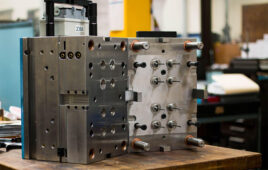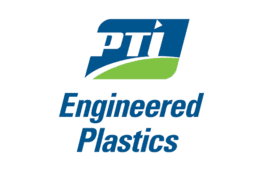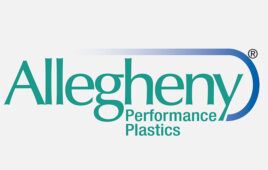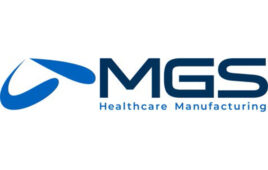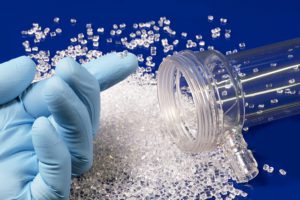
[Image courtesy of Toray Industries]
Toray officials think the resin could be ideal for any sort of connector in a fluid application requiring resistance to lipids and oils.
Toray Industries (New York) is touting its Toyolac transparent ABS resin as a less expensive alternative to polycarbonate.
Newly available in the U.S. for medical applications, Toyolac is an FDA Drug Master File-registered material that has several advantages over polycarbonate, according to Minneapolis-based Toray consultant Aron Yngve.
Toyolac can be molded at much lower cylinder temperatures than polycarbonate (210° C to 260° C, versus 280° C to about 310° C for polycarbonate). In spiral-flow testing, Toyolac can reach 270 mm, whereas polycarbonate gets to 100 mm before stopping.
“You can get more cavities than you can with polycarbonate,” Yngve said. “It flows further, depending on the mold. It translates into an enormous reduction in your cost to mold it. You can get almost twice as many parts as you would with a polycarbonate.”
As an ABS resin, Toyolac is not as strong as polycarbonate, but many medical applications do not require such strength, according to Yngve. It may be ideal for any sort of connector in a fluid application and is resistant to lipids and oils.
“This is great for applications that can have direct circulating-blood contact as well as drug infusion applications,” he said.
Although it is not translucent, Toyolac can transmit light nearly as well as polycarbonate, Yngve added. Polycarbonate rates at about 90% clear for light transmission and Toyolac comes in at 87%. Even transparent materials can have some haze to them, and the haze on polycarbonate is 1%, while Toyolac’s haze is 3%, he noted.
Achieving that level of transparency in this resin was the biggest challenge for Toray engineers, who adjusted the refractive index of its components.
“What people really want is clear plastic that is capable of competing with polycarbonate but yet is more inexpensive as a straight polymer when you purchase it,” Yngve said. “Most importantly, it is hugely easier to process.”
Shorter cooling times contribute to faster production cycles, too.
Toyolac may be sterilized using ethylene oxide or gamma rays, but cannot be autoclaved. It is USP Class 6 tested and meets ISO 10993 for biocompatibility. Specific tests include –4 for blood interactions, –5 for in vitro cytoxicity, –10 for irritation & skin sensitization and –11 for systemic cytotoxicity. It also is USP 88 biological reactivity tested (USP Plastic Class VI).

